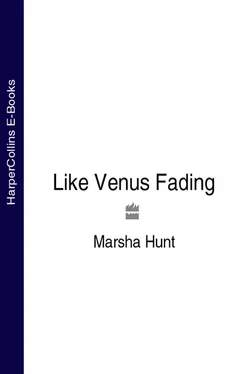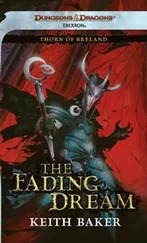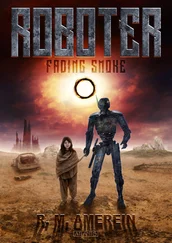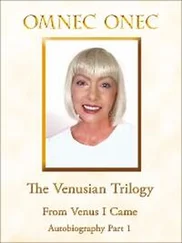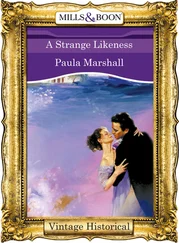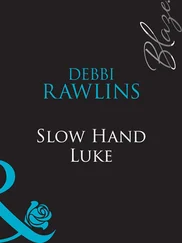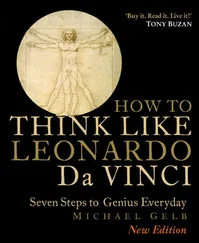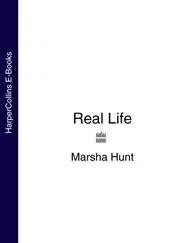When I rounded a corner and spotted Enright’s, I saw it as shelter and ran in, more to seek safety than to do that errand for Mack.
Drenched and panting, I clutched his note so tightly that my fingers ached.
I’m not one for gasping. Hell, I didn’t gasp when I heard that I was up for that Oscar … nor when the doctor confirmed that there was something wrong with my little Nadine. But I definitely gasped that afternoon in Enright’s … Sucking my breath in hard at the sight of Mrs O’Brien standing there in a raincoat waiting to be served. Two women were ahead of her who both turned to look down at me when she snapped, ‘Mercy, Irene! Trust your mother to send you out in this storm.’
It was Mrs O’Brien’s sugary voice, reserved for Mack’s Irish customers. I wouldn’t have believed that she was addressing me had I not heard my name.
She’d called me I -rene with the stress on the ‘I’, but I- reen is correct.
And without meaning to, I actually looked into her eyes.
They were blue. A clear aquamarine. They sparked anger that went way, way back. Somewhere deep.
Mack’s wife. Nola O’Brien. More important to him than I was.
She spoke so loudly that the butcher and his boy and the two female customers heard her. ‘Your mother has owed me fifty cents since the first of the month. I knew she was lying when she claimed she didn’t have it, and it’d better not be my money she’s wasting on meat.’
Her husband had on several occasions fingered me in his dank storeroom, but I had yet to figure out that I had good reason to be fighting mad at her for that. All I knew was that Mrs O’Brien was calling Mother a liar, and insulting somebody’s mother in those days was a battle cry.
Scared to raise my head, with my eyes glued to Mrs O’Brien’s galoshes and my heart pounding, I found the gumption to say, ‘Leave my Mother alone!’ Coward that I was, I probably only said it above a whisper, but somebody heard, an old craggy woman in a headscarf who whacked me on the head with the handle of her umbrella saying, ‘No-account little niggers make you forget yourself.’ When my arms flew to protect my head, I dropped Mack’s note and, wet and wounded, I howled like a baby.
To be honest, I really thought I had no right to be in Enright’s, because he was a white butcher and his customers were white.
Mrs O’Brien leered over me like she’d been smelling my scent on her husband’s fingertips. As I bent to pick up Mack’s note which had fallen by her foot, she kicked my hand away and reached down herself.
Her eyes flashed like a cat ready to take on a dog, and I was too terrified to swallow.
When she snorted, ‘Kidneys!’ only a crack of lightning could have made me jump more.
Before I could run Mrs O’Brien grabbed me, thrusting me violently towards the meat chopping block. Then she snapped, ‘Mr Enright, give this child a couple pork chops. With the kidneys, and don’t give her your best.’ My pulse was pounding in my ears and I was gulping big sobs.
I blubbered half the way home, but the rain had stopped and when I spotted a rainbow, I forgot that I’d been hit. I’d heard about rainbows and seen them in storybooks but had never seen one for real and the sight now filled me with overwhelming glee. Of course this sudden mood switch, this inability to hold onto torment, is a sign of a weak character, a failing that Mother always said came from my father.
Any normal child would have probably delivered the chops to Miss Hortense in tears, devastated and confused, but I skipped into Mack’s, collected the soda crackers that Miss Hortense had originally sent me for and popped that caramel in my mouth before hearing the bell tinkle as I shut the door. I had completely forgotten that I’d seen his wife.
Two hours later, when Mrs O’Brien was shouting at our door, Mother blocking my view, I couldn’t see the way Mrs O’Brien brandished Mack’s note.
For such a skimpy piece of paper with so little on it, it carried an uncommon weight and was to be brandished again by Mack’s lawyer. The newspaper report claimed that Mrs O’Brien mistook the note as evidence that Mack was involved in an illicit, sordid relationship with a coloured maid from Los Angeles named Hortense Alvarez.
Coloured being the operative word.
But the newspapers always mash up the facts and Mexicans do have some colour.
I don’t know why Mother and Lil weren’t enough family for me.
I don’t know why I made so much of Miss Hortense.
But I don’t want to recall what should have been, I want to look at what was … And Miss Hortense filled a need that I must have had, a need to have a fancy woman to muse upon. Maybe that’s all goddesses have ever been. Did I come into this world incomplete until I could connect with a woman whose beauty seemed beyond reach? Although my mother had some virtues, fancy wasn’t one. Nor did I expect it to be.
Even her name, Ruthie Mae Matthews, conjures up the image of somebody who puts hands to the plough (and her maiden name, Ruthie Mae Higgins, even more so).
Mother was fifteen when she ran away from her home in Mississippi, and Daddy was a Pullman porter on the train she caught. It turned out that he had two ways of trapping naïve country girls: some got his compliments, others his lemon drops. But Ruthie Mae Higgins sampled both.
At that green age she could milk a cow, slaughter a hog and beat grown men picking a bale of cotton. But that is as much of her early life as she ever mentioned after she caught Daddy’s train whistling its way towards Chicago.
I never met him and Mother rarely talked about him except to brag to other women that he was a Creole with hazel eyes who looked trim but broad-shouldered in his starched white porter’s jacket. She spied him first while she was seated alone in the crowded coloured section.
She didn’t explain why she let a stranger old enough to be her father lure her to Philadelphia, but I guess she was open to any offer and his of a job taking care of his ancient aunt Lucy was all the coaxing Mother needed.
John Randolph Matthews.
He had women in half the cities that the trains stopped in, so I still can’t decide if it was immoral that he married Mother even after she fell pregnant. For some reason, he moved her to Camden before she started showing and then stayed gone, apart from an occasional reappearance. So between having Lilian, a stillbirth and then producing me, Mother started to take in ironing. That’s how she met the Herzfelds. Then, when Daddy disappeared altogether, they offered additional hours until gradually she cooked and cleaned for them full time.
An orphan would have had more to say about their childhood than Mother revealed about hers, and in later years, anyone would have thought that she’d been born a Herzfeld. They represented safety and salvation and I wonder if domestics like her felt that they had two homes, two families … In Mother’s case, I imagined she endured life with us but lived with them. Under the Herzfelds’ roof from sun-up to sun-down, Mother must have felt kind of rich. Until she entered their back door, donned her fresh apron and gave the milkman his order, she was a Miss Nobody. Or worse, a ‘coloured’ Miss Nobody with no husband.
The Herzfelds were the nearest Mother got to owning a house, a car and three radios. She presumed they were nearly royalty because their eldest took violin lessons, and the fact that they knew people who could afford a night out in New York to catch a vaudeville show made my mother think that our future was secure.
When she scrubbed the ring of dirt away after Mrs Herzfeld’s bath or scraped the mud off Mr Herzfeld’s shoes, Ruthie Mae Matthews felt as significant as a clock’s hands. Because her ‘white folks’ gave her status even though they didn’t pay much.
Читать дальше
